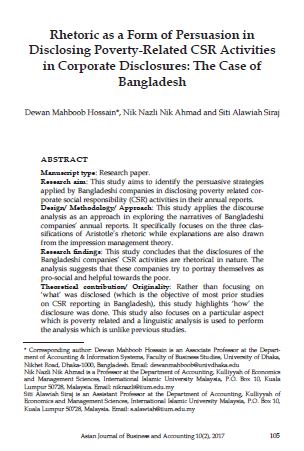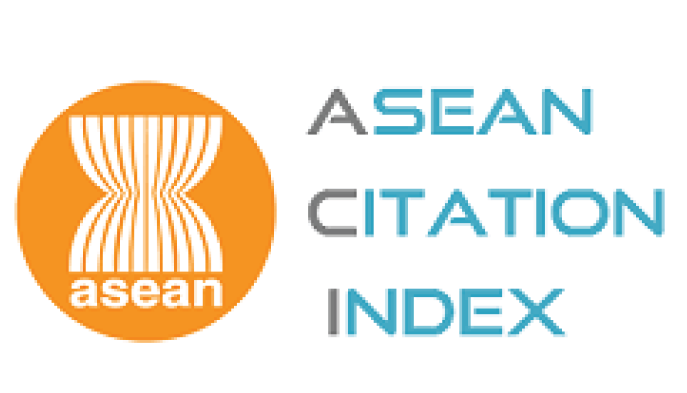Rhetoric as a Form of Persuasion in Disclosing Poverty-Related CSR Activities in Corporate Disclosures: The Case of Bangladesh
Abstract
Manuscript type: Research paper.
Research aim: This study aims to identify the persuasive strategies
applied by Bangladeshi companies in disclosing poverty related corporate
social responsibility (CSR) activities in their annual reports.
Design/ Methodology/ Approach: This study applies the discourse
analysis as an approach in exploring the narratives of Bangladeshi
companies’ annual reports. It specifically focuses on the three classifications
of Aristotle’s rhetoric while explanations are also drawn
from the impression management theory.
Research findings: This study concludes that the disclosures of the
Bangladeshi companies’ CSR activities are rhetorical in nature. The
analysis suggests that these companies try to portray themselves as
pro-social and helpful towards the poor.
Theoretical contribution/ Originality: Rather than focusing on
‘what’ was disclosed (which is the objective of most prior studies
on CSR reporting in Bangladesh), this study highlights ‘how’ the
disclosure was done. This study also focuses on a particular aspect
which is poverty related and a linguistic analysis is used to perform
the analysis which is unlike previous studies.
Practitioner/ Policy implication: This study calls for the participation
of regulators and stakeholders in introducing appropriate regulations
that can ensure a ‘balanced’ disclosure of the companies’ CSR
activities so that stakeholders are not misled.
Research limitation: The main limitation of this research is that
it focuses on only one kind of impression management strategies,
namely rhetorical appeals.
Keywords: Bangladesh, Corporate Social Reporting, Discourse
Analysis, Poverty, Rhetoric.
JEL Classification: I3, M14
Downloads








